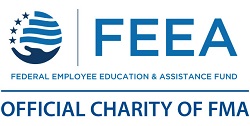FMA Washington Report: January 17, 2023 This report provides an update on issues affecting federal managers. As always, I encourage you to visit www.fedmanagers.org on a regular basis for more information on these and other matters. Also, be sure to look for the monthly FMA Grassroots Update, where we offer links to action letters and FMA-PAC matters we do not address in the Washington Report. The grassroots newsletter is sent exclusively to non-governmental email addresses to avoid any Hatch Act violations. If you are not receiving it, contact the national office to provide your non-governmental email address. Please feel free to provide feedback any time by emailing Greg Stanford at gstanford@fedmanagers.org or by calling the National Office at (703) 683-8700. Thank you for your membership in FMA. It’s an honor to represent your interests before Congress and the administration. What's Affecting Feds? ICYMI: Your Pay Raise for 2023 Federal employees received a 4.6 percent pay raise for 2023, the largest increase in twenty years. The raise is split between a 4.1 percent increase to basic pay and an average 0.5 percent increase to locality pay. Going forward, FMA will continue to work with Rep. Gerry Connolly (D-VA) and Sen. Brian Schatz (D-HI), the legislators who have historically introduced the FAIR Act, for a better raise in 2024. Legislative Outreach Welcome to the 118th Congress The 118th Congress began on January 3rd and will continue until January 3, 2025. Rep. Kevin McCarthy (R-CA) was elected Speaker of the House and Republicans will control that chamber as the majority party, including leadership on committees and what legislation is brought for consideration on the House floor. Democrats maintain control of the Senate, and Sen. Patty Murray (D-WA) is serving as the first female Senate pro tempore in history. All bills introduced in the 117th Congress, but not enacted, are gone. Efforts FMA supported, such as the Equal COLA Act, hiring reform, and other bills, need to be reintroduced in the new Congress. FMA staff will meet with new Members of Congress and introduce them to our legislative priorities. Stay tuned to the Washington Report for information as legislation gets introduced, and the Grassroots Newsletter for ways you can help us accomplish our goals. FMA-Endorsed GPO/WEP Repeal Bill Reintroduced Among the first bills introduced in the 118th Congress was a bill to eliminate the Government Pension Offset (GPO) and the Windfall Elimination Provision (WEP). FMA supports this bipartisan legislation, sponsored by Rep. Garret Graves (R-LA). FMA has worked for years on the effort to repeal or mitigate the GPO and WEP, and last year Congress got the closest it ever has to advancing a full repeal. The legislation, also named H.R. 82 in the 117th Congress, received more than 300 cosponsors, or nearly 70 percent of the House of Representatives. While the bill did not receive a vote in the 117th Congress, the newly reintroduced version already has 46 cosponsors. IRS “Clawback” Bill Introduced and Passed in House On January 9, Rep. Adrian Smith (R-NE) introduced the Family and Small Business Taxpayer Protection Act (H.R. 23), legislation that would claw back most of the $71 billion Congress provided the Internal Revenue Service (IRS) over the next 10 years. The House then passed the bill, also on January 9, by a vote of 221-210. H.R. 23 is not expected to advance any further in the legislative process in the 118th Congress. FMA supported the inclusion of the funding for the IRS as part of the Inflation Reduction Act. While many legislators expressed concern about the resources provided to the IRS, then-Commissioner Charles P. Rettig wrote that IRS audit rates would maintain the Treasury directive current levels for “households making under $400,000.” The new hires the IRS sought were “those who answer the phones, work on processing individual tax returns or go after high-end taxpayers or corporations who are avoiding their taxes.” As we wrote in a ‘Hear it from FMA’ article in September 2022, “statistics from the Government Accountability Office demonstrate the clear need in those areas. The IRS has lost roughly 13 percent of its staff since 2012. Its budget has diminished by 15 percent in that time.” The Holman Rule Returns for the 118th Congress The House of Representatives included a return of the “Holman Rule” as part of the rules package governing the House in the 118th Congress. Named after former Rep. William Holman, the rule “empowers any member of Congress to propose amending an appropriations bill to single out a government employee or cut a specific program.” The amendment would need to be adopted by a majority vote of both the House and the Senate. The Holman Rule first emerged in 1876 and has been rarely used in those nearly 150 years. It was last in place in 2017, and was used to target specific employees at the Congressional Budget Office, the Department of Defense, and the State Department. Those amendments were not adopted. Since there is a high bar to adopt an amendment via the Holman Rule, we expect its usage to be sparse and unsuccessful in the 118th Congress. However, an amendment adopted by the House could make negotiations for finalizing funding bills more difficult. FMA will keep a close eye on the usage of the Holman Rule. |
---


